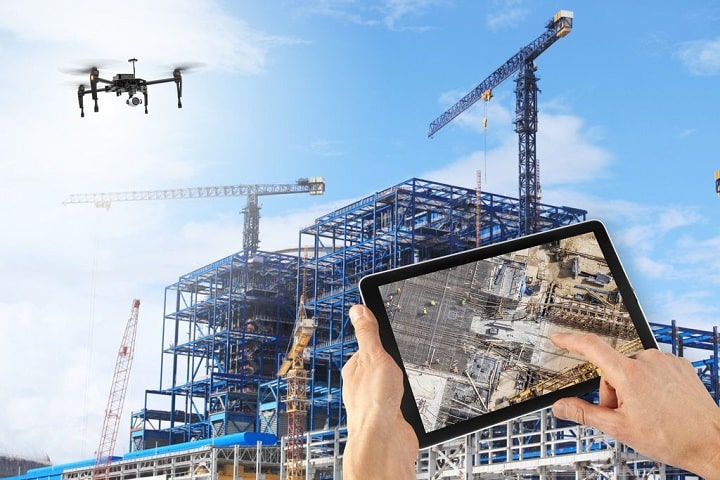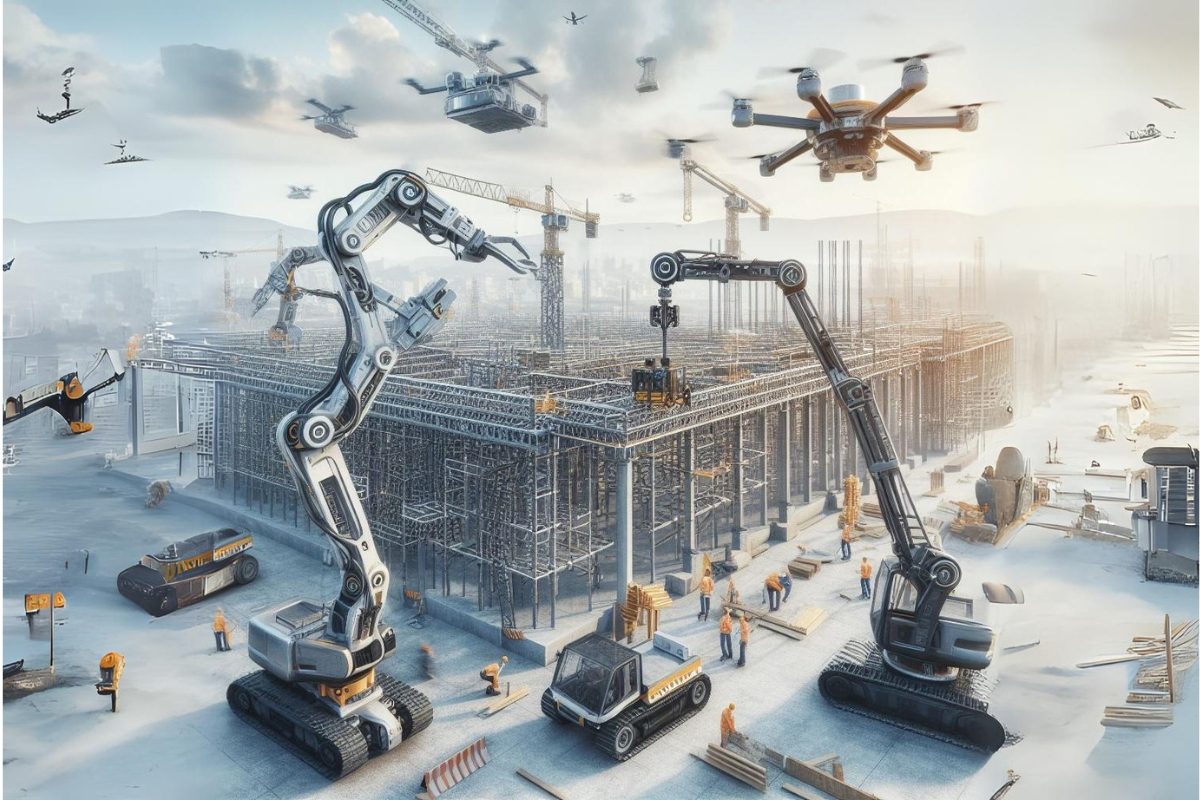The realm of Construction Technology. As industries evolve, so does the construction sector, embracing cutting-edge tools and techniques to build a greener, smarter future. In this blog post, we delve into the role of Construction Technology in driving sustainable development and revolutionizing traditional practices. Let’s explore how advancements in technology are reshaping the landscape of construction as we know it!
Key Components of Construction Technology Tools and Applications
Construction technology tools and applications play a crucial role in revolutionizing the construction industry. One key component is Building Information Modeling (BIM), which allows for detailed 3D modeling of structures, enhancing collaboration and efficiency among project stakeholders. Another essential tool is drones, used for surveying job sites, monitoring progress, and improving safety measures.

Virtual Reality (VR) and Augmented Reality (AR) are also becoming increasingly popular in construction to visualize projects before they are built, enabling better decision-making during the design phase. IoT devices like sensors and wearables enhance site safety by collecting real-time data on environmental conditions and worker health.
Mobile apps streamline communication between teams on-site or off-site, facilitating quick access to project documents, schedules, and updates. Robotics are transforming traditional construction methods through automation tasks such as bricklaying or excavation processes with precision and speed.
Benefits of Adopting Construction Technology in the Industry
In today’s rapidly evolving construction industry, embracing technology has become a game-changer for companies looking to stay competitive and sustainable. Adopting construction technology brings a myriad of benefits that go beyond just efficiency gains.
One major advantage is the significant cost savings that can be achieved through streamlined processes and reduced rework. Technology also enhances safety on job sites by enabling real-time monitoring and risk analysis to prevent accidents.
Moreover, adopting construction technology improves project management by providing accurate data insights for better decision-making. Collaboration among team members is enhanced with tools like Building Information Modeling (BIM), facilitating communication and coordination throughout all project phases.
Furthermore, sustainability goals are more attainable with the use of eco-friendly materials sourced through digital platforms. Integrating construction technology not only boosts productivity but also sets new standards in quality and innovation within the industry.
Emerging Trends in Construction Technology Automation, Robotics, and AI
As technology continues to advance, the construction industry is embracing automation, robotics, and artificial intelligence like never before. Automation streamlines processes by using software and machines to perform repetitive tasks with precision and efficiency. This not only speeds up project timelines but also reduces the risk of human error.
Robotics are revolutionizing construction sites by taking on physically demanding or dangerous tasks. Drones equipped with cameras provide real-time monitoring of progress while autonomous vehicles transport materials around job sites seamlessly.

Artificial intelligence enhances decision-making processes through data analysis and predictive modeling. AI algorithms can optimize building designs for energy efficiency, identify potential safety hazards, and even assist in project planning.
These emerging trends in construction technology are reshaping the industry landscape, allowing companies to work smarter, faster, and more sustainably than ever before. By embracing these innovations, construction firms can stay ahead of the curve in an increasingly competitive market.
Challenges and Solutions in Implementing Construction Technology
Implementing construction technology comes with its fair share of challenges. One common hurdle is the initial investment required to adopt new tools and systems. Many companies may hesitate due to budget constraints or fear of change. Additionally, integrating these technologies into existing workflows can be a complex process, leading to resistance from workers accustomed to traditional methods.
Another challenge lies in data management and security. With the abundance of information generated by construction tech, ensuring the protection and proper utilization of this data becomes crucial. Moreover, skill gaps among employees pose a significant obstacle. Training staff on how to effectively operate new technologies is essential for successful implementation.
However, solutions exist for these challenges. Companies can gradually introduce technology, starting with pilot projects to showcase benefits before full-scale adoption. Providing comprehensive training programs can help upskill employees and alleviate concerns about using unfamiliar tools.
Training and Education in Construction Technology Building a Skilled Workforce
In the ever-evolving world of construction technology, one crucial aspect that cannot be overlooked is the training and education of the workforce. Building a skilled team is essential for harnessing the full potential of cutting-edge tools and applications in the industry.
Providing comprehensive training programs ensures that workers are equipped with the knowledge and expertise to leverage technology effectively. From virtual reality simulations to hands-on experience with advanced machinery, continuous learning opportunities empower employees to stay ahead in a rapidly changing landscape.
By investing in education and upskilling initiatives, companies not only enhance their operational efficiency but also create a culture of innovation within their teams. This proactive approach not only attracts top talent but also retains skilled professionals who are eager to embrace new technologies and methodologies.
Fostering a workforce that is well-versed in construction technology sets the foundation for sustainable growth and success in an increasingly digitalized industry.
Conclusion:
Construction technology has revolutionized the way projects are planned, executed, and completed. With advancements in automation, robotics, AI, and other tools, the industry is poised for sustainable growth and development. By embracing these technologies, construction companies can improve efficiency, reduce costs, minimize waste, and enhance overall productivity.
As we look to the future of construction technology, it is clear that continued innovation and integration will be key to unlocking even greater benefits. Challenges such as initial investment costs and workforce training can be addressed through strategic planning and collaboration.
By investing in training programs and education initiatives to build a skilled workforce adept at utilizing construction technology tools effectively, companies can position themselves for success in an increasingly competitive market.
Construction technology plays a vital role in shaping the future of sustainable development within the industry. As more firms embrace these innovations and adapt to changing trends, they will not only drive progress but also contribute significantly towards building a greener environment for generations to come.
